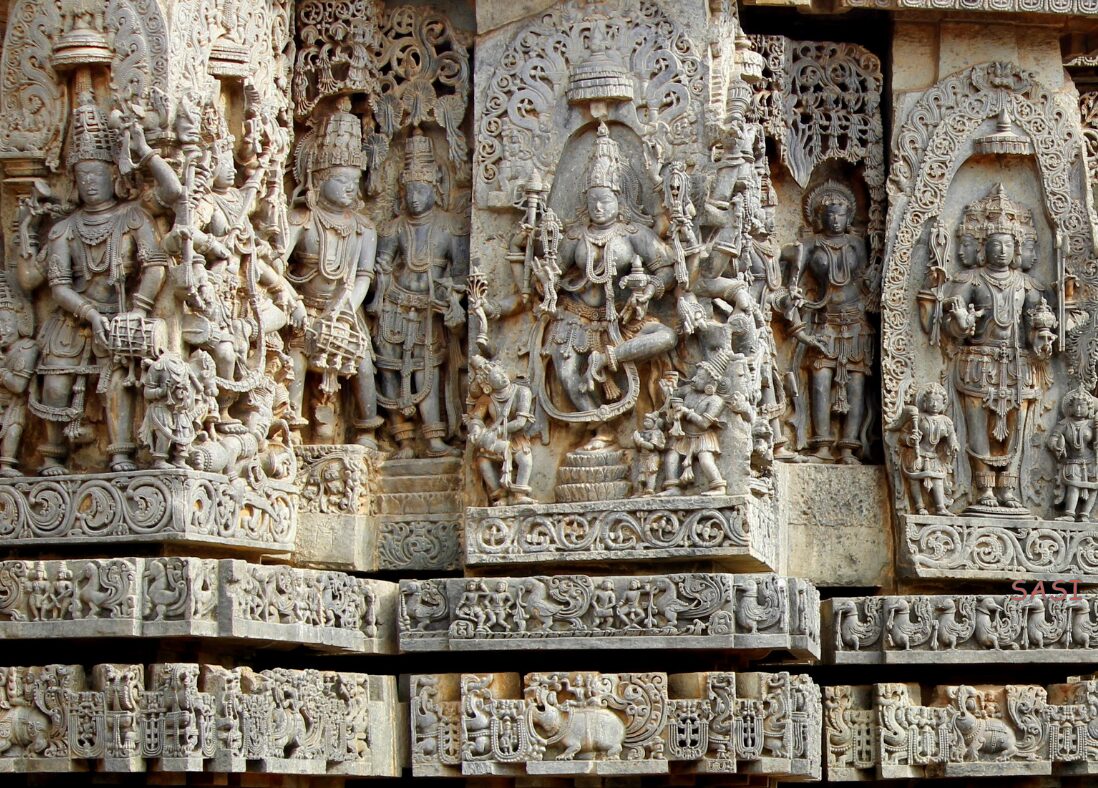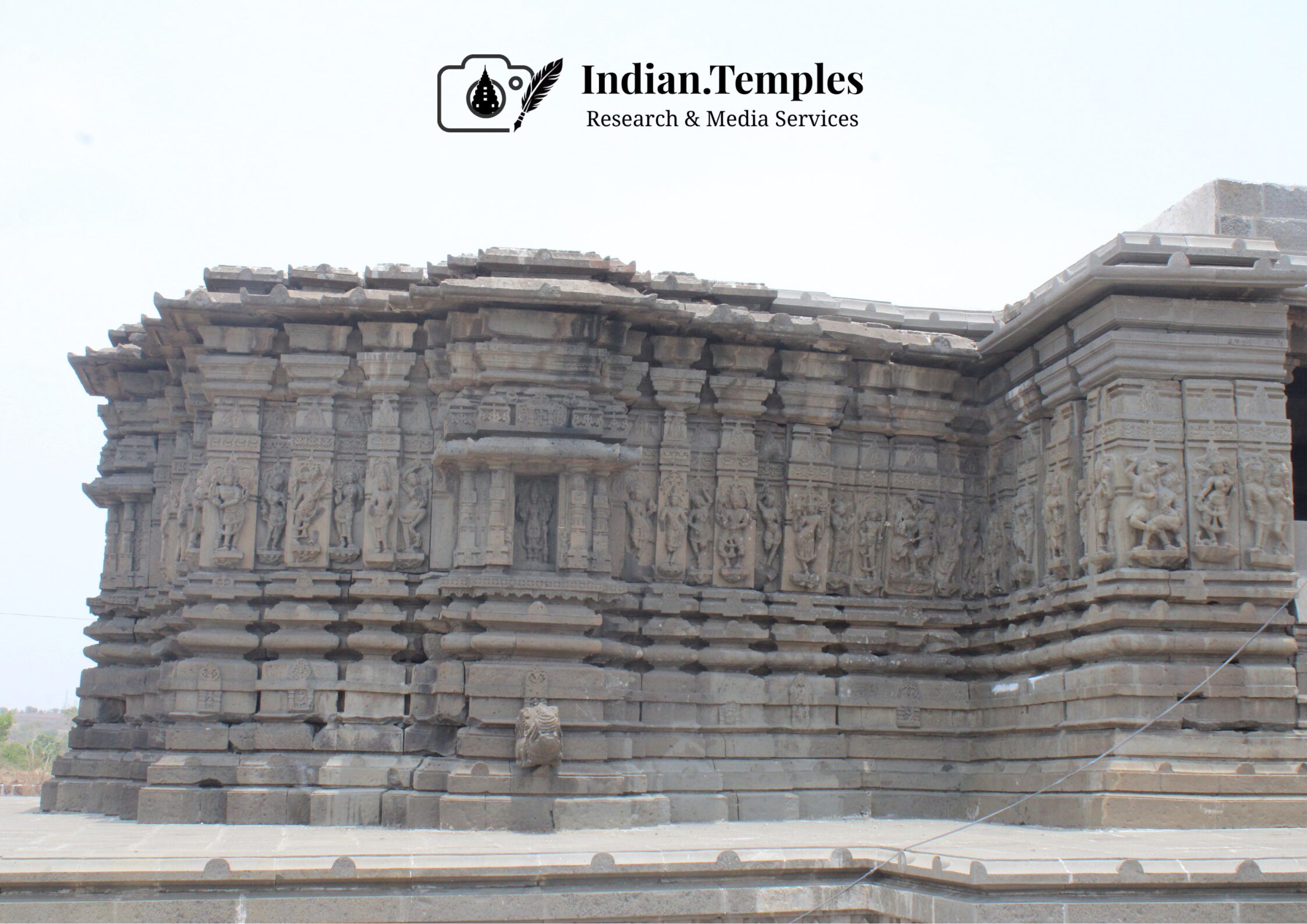
A Balipeetham has to be most misrepresented aspect of Indian temples. Balipeetham is a small square or octagonal structure built on a square platform. The structure maybe plain in design or maybe artistically crafted. The Balipeetham is placed right next to the Dhwajastambha.
The Balipeetham is often said to be the place for animal sacrifice. Mostly the narrative that was spread by British system. While the words Animal and Sacrifice both are associated with the purpose of Balipeetham, the “animal sacrifice” isn’t the one.
The word Bali has two meanings. It means “sacrifice” and “powerful”. So, the Peetham (seat/place) for Bali may mean the “place for sacrifice” or “seat of the powerful”. The Balipeetham was indeed used for animals, but not to sacrifice them. Instead, it was used to support the ecosystem and to feed the animals. Every day, when devotees would come to worship in temple, they would bring some food with them. This food will be placed at the Balipeetham, as an offering to deity. This is like a powerful (Bali) person sacrificing (Bali) something for the deity. This food offered to deity is called as Naivedyam. The Naivedyam placed at the Balipeetham would then be eaten by the birds and animals around. So, in a way, this Balipeetham is used for animals and for the sacrifice by the powerful. The temple priest also puts some Prasad on the Balipeetham after the rituals inside the Garbhagriha.

There is one folklore that is associated with the Balipeetham. Many epics and Purans tell story of Mahabali, one of the greatest kings the earth has seen. He is the grandson of Pralhada and descendent of sage Kashyapa. Mahabali is is considered to be the noblest and most prosperous ruler, who transformed his kingdom into a heavenly place. His legend is a major part of the annual festival Onam in the state of Kerala, and Mahabali is celebrated in Maharashtra, Karnataka, Gujarat, Telangana, Andhra Pradesh as Balipratipada, Balipadyami or Bali padwa (the third day of Deepavali and first day of Kartika month). He was such a great leader than even Indra got jealous of her and seeked Vishnu’s help to finish him.
Vishnu incarnated as the dwarf Brahmin avatar, Vamana. While Mahabali was performing the ashvamedha sacrifice to celebrate his victories and giving away gifts to everyone, Vamana approached him and requested “three steps of land”. Mahabali granted him this gift, despite warnings from Shukra, who had realised Vamana’s true identity. Vamana then metamorphosed into Vishnu’s colossal trivikrama form, the first foot encompassing all of heaven in one step and the earth with the second foot. When rhetorically asked where he might take his promised third step, Mahabali accepted his fate and offered his own head. Some Hindu texts state that Mahabali was banished to patala (netherworld), some state he was dragged there by Garuda, in others he entered heaven with the touch of Vishnu, while another version states he became Chiranjivi (immortal). Others even have Bali admitted into Vaikunta, which was an even higher place than the realm of the devas.
In all these various versions, there is a version where Vishnu asked Mahabali to ask for a boon, in return of his great sacrifice. Mahabali asked for a place close to God. So Vishnu offered him a seat (Peetham) inside every temple, And that’s why Balipeetham is the “Seat of the Mahabali”. And keeping up with the noble spirit of Mahabali, we offer Prasad for the animals at the seat of the great king.

The Balipeetham also has a psychological and spiritual significance. A person is often said to be full of Shadripu or six enemies of mind. They include Kama (desire), krodha (anger), lobha (greed), mada (Sense of I), moha (Attachment), and matsarya (Partiality). When one is visiting the deity, one is expected to be free of these 6 enemies. And this is where Balipeetham comes in picture. Balipeetham is said to be the seat of offering, where a person offers these 6 things to the deity; and then walks inside the temple free of these 6 enemies. So Balipeetham is like cleansing mechanism for the mind.
So next time someone calls Balipeetham as a place for animal sacrifice, you know what to tell him. Right?






One thought on “The Essence of Balipeetham: Unveiling Its True Significance”